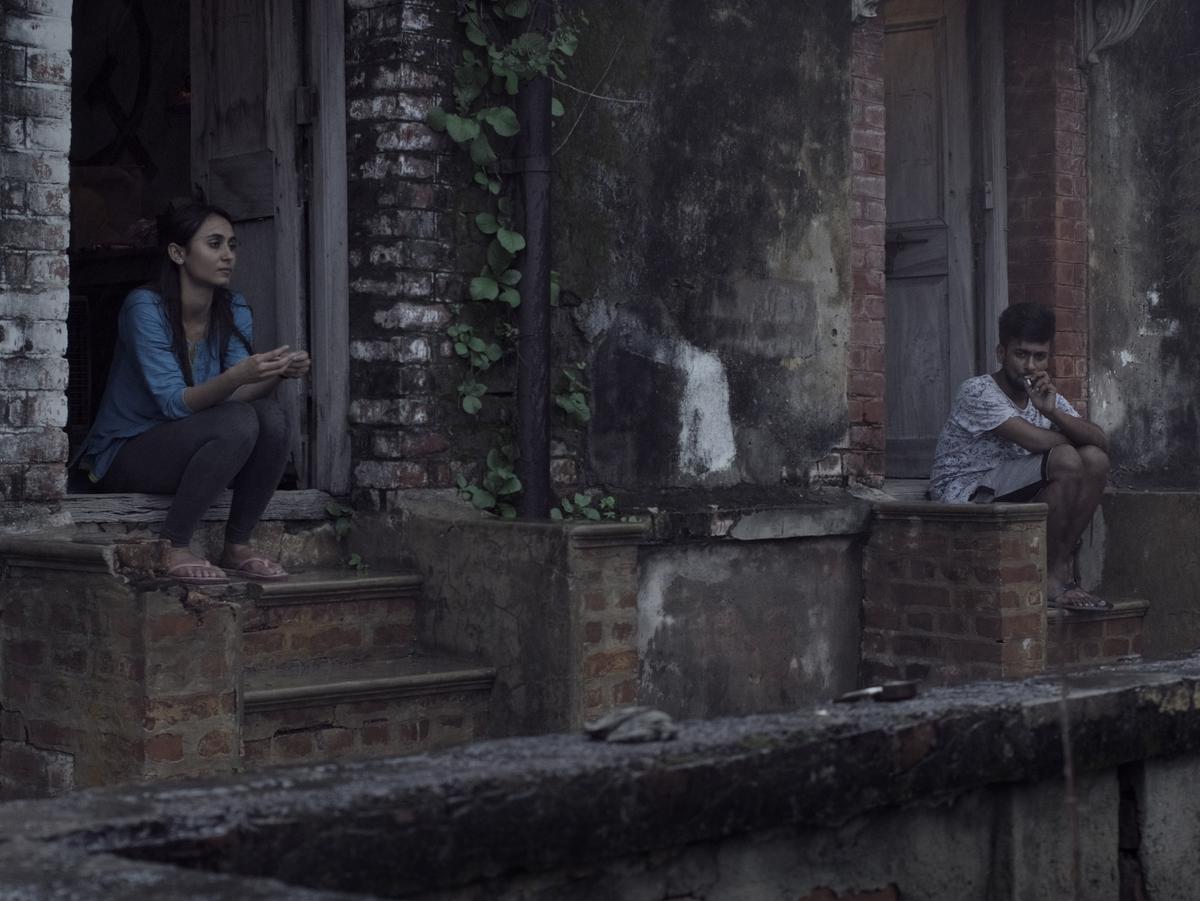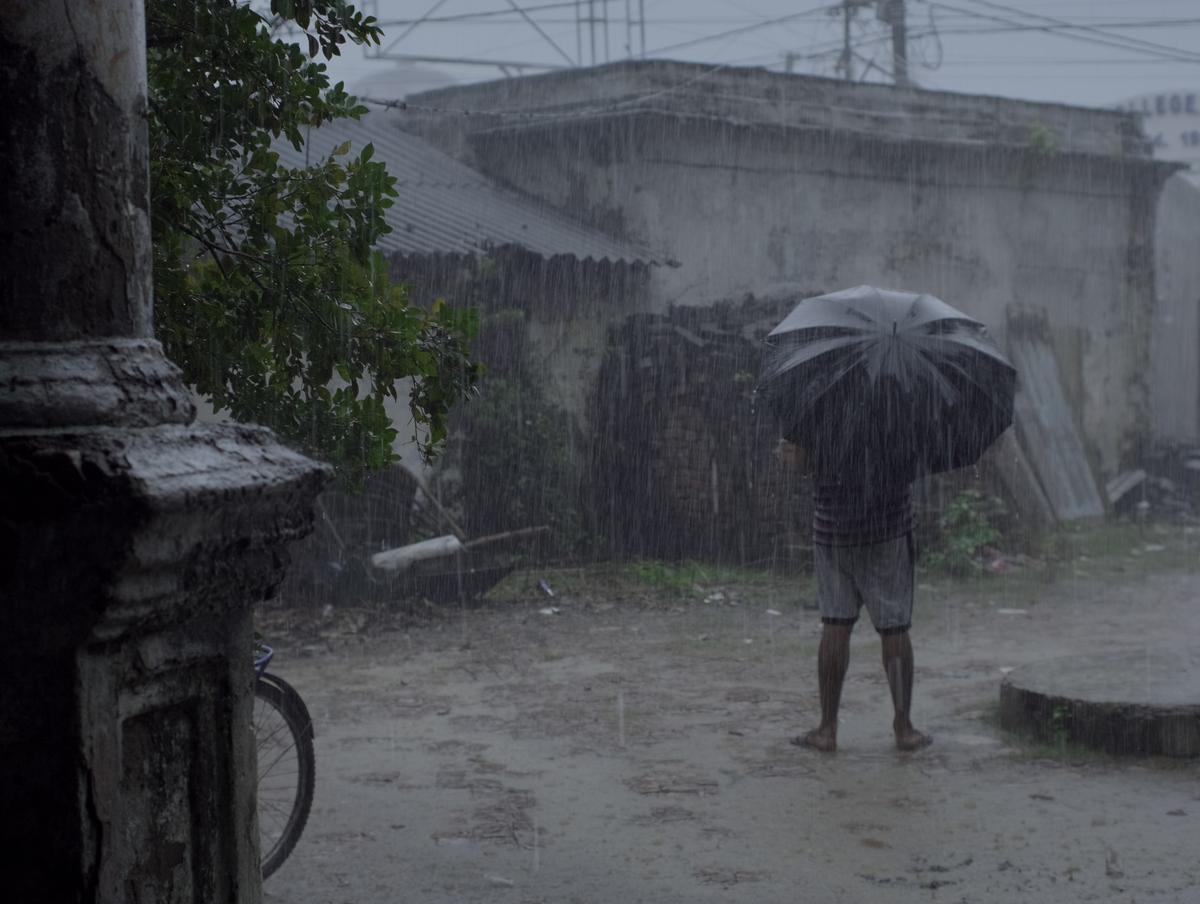
‘Pokhar Ke Dunu Paar’ asks, Can love endure a pandemic?
https://th-i.thgim.com/public/entertainment/movies/5gmxhk/article67579001.ece/alternates/LANDSCAPE_1200/Pokhar%20Ke%20Dunu%20Paar%20is%20currently%20streaming%20on%20MUBi.jpg
‘Pokhar Ke Dunu Paar’, a 104-minute Hindi-Maithili feature, is currently streaming on MUBI
The Darbhanga indie is now a flourishing mini-genre. The city in Bihar—known for its hospitals, heritage sites, musical traditions and mango orchards (and where the writer of this piece was co-incidentally born)—has been the setting of two intimate, evocative films of recent years: Achal Mishra’s Dhuin (2022) and Gamak Ghar (2019). Rendered in highly naturalistic Maithili, with unshowy performances, these films offer gentle yet moving ruminations on migration and home—and the kind of quiet economic desperation sweeping small-town India.
Adding to this fascinating list is Parth Saurabh’s Pokhar Ke Dunu Paar. Currently streaming on MUBI, the 104-minute film is a love story—of sorts. Two years before the pandemic, Sumit (Abhinav Jha) and Priyanka (Tanaya Khan Jha) ran away from their homes in Darbhanga to build a new life in Delhi. But the lockdown has forced them to return, and, with nowhere else to turn, they are holed up inside the CPI party office in an old part of town. It’s meant as a temporary arrangement, even if Priyanka—disillusioned by Sumit’s drinking and general lack of industry—is beginning to suspect otherwise.

A still from ‘Pokhar Ke Dunu Paar’
Saurabh grew up in Darbhanga and later completed his Engineering from IIT Kanpur. He shifted tracks by studying direction at Whistling Woods International in Mumbai (He met his partner, filmmaker Nisheeta Keni, at film school). His first feature script, a Stalker-like story about a mystical, wish-fulfilling room in a remote village, was selected for the NFDC Screenwriters Lab in 2017. But the money wasn’t forthcoming, and some years later, the pandemic happened. Pokhar Ke Dunu Paar—’On Either Sides of the Pond’—emerged from Saurabh’s experiences and observations during those difficult, draining years.
“I went back to Darbhanga in June after the first lockdown in 2020,” he recalls. “I saw a lot more young people around than usual. Most of them were migrants in their 20s who had returned. Everybody was jobless… they were just roaming around, doing drugs. That affected me a lot.”
In the film, as Sumit boozes and marks time with his pals, while also subsisting on their favours, Priyanka attempts to re-establish contact with her father. As Saurabh wrote, he had two famous films in mind as guiding frameworks—Federico Fellini’s I Vitelloni (1953) and Charlie Kaufman’s I’m Thinking of Ending Things (2020). The former is one of cinema’s great poems of youthful insouciance and indirection in a small town; the latter observes a crumbling relationship from the perspective of its female protagonist. Saurabh filtered these influences through real-life conversations he had with his wife and his sister. “As a male, I have a very idealised view of small-town life. But for women, it can be very constrictive.”
He consciously avoided giving his protagonists surnames. “I knew that it was an inter-caste relationship but I did not want to spell it out. You can assume it just by the context of their predicament and I did not have anything more to add to that.”
Saurabh had worked in various capacities on Gamak Ghar and Dhuin. Pokhar Ke Dunu Paar takes a few of its creative cues from its predecessors: a boxed-in aspect ratio, minimal camera movements, conversations allowed to unscroll and meander at a leisurely pace. Abhinav Jha, who’s actually from Giridih in Jharkhand, stars in all three films. But where the Darbhanga of Achal Mishra’s cinema is almost ruefully nostalgic—a postcard view of one’s childhood home, buffeted by modernity and change—the city that Saurabh and cinematographer Pradeep Vignavelu evoke is a drenched, dripping, forbidding place. There are images that strike the eye: a stray horse grazing the streets, a rundown bus with ‘ABVP’ scrawled on it.

‘Pokhar Ke Dunu Paar’ won a Special Jury Mention at the San Sebastian International Film Festival
The CPI party office featured in the film is a real one: Saurabh’s grandfather was a veteran of the Left movement in Bihar; Saradh Singh, an All India Students’ Federation (AISF) leader in Darbhanga, helped in the production of the film. “The communist party in Bihar is now a shadow of what it used to be in the 70s and 80s, though it has witnessed a resurgence in the last elections,” Saurabh says. He wanted Sumit’s ideologies in the film to be roughly aligned with the communist mindset. “For instance, Sumit does not believe in private property so he sells off his friend’s bike. At the same time, he is lazy and does not fit into the image of a ‘worker’.”
In one of the film’s most affecting scenes, Sumit has a heart-to-heart with his best friend, telling him how big city life was hard on him and his girlfriend. It was not how he envisioned it when they eloped. “Haath mein kuch bachta nahi hai (We had no savings),” he confesses, a reality for migrant couples working ill-paying jobs in metro cities. Both the financial strain brought on by circumstance and the emotional unavailability on Sumit’s part stem from a deeply personal space for Saurabh.
“There was a phase in my life when I wasn’t quite there when my partner needed me,” he says. “This film is like a long apology letter from me to her.”
Pokhar Ke Dunu Paar is on MUBI
#Pokhar #Dunu #Paar #asks #love #endure #pandemic


